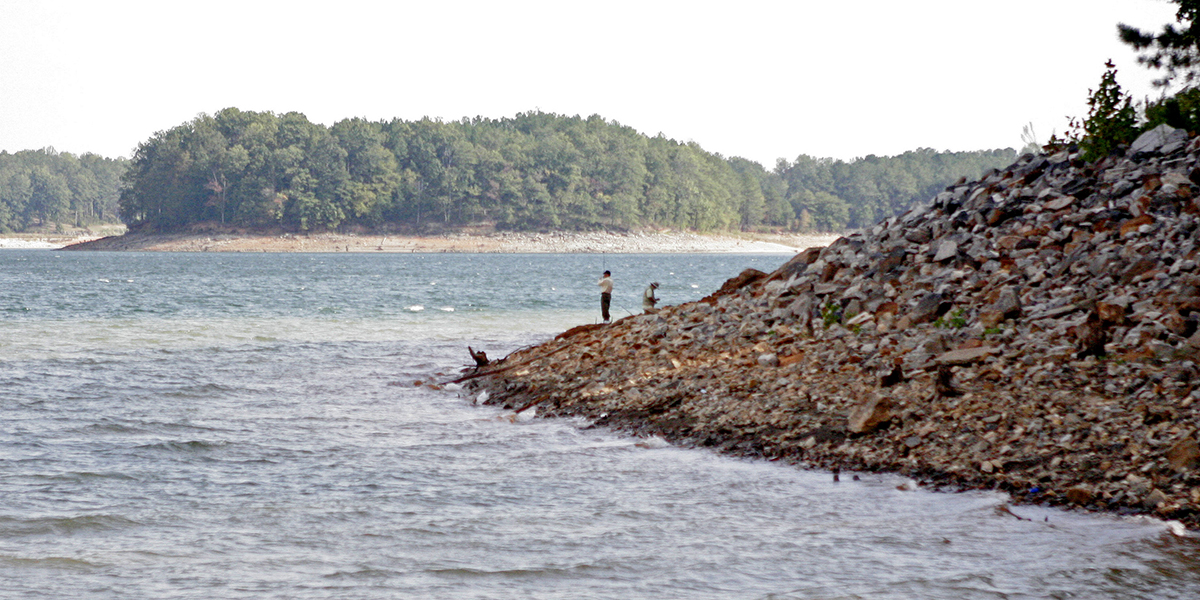Georgia Prepares For Water Wars Case With Drought Backdrop

Men fish from the exposed shore at Lake Lanier in Buford, Ga., Tuesday, Oct 7, 2008. Lake Lanier, the main source of water for Atlanta, is touching record low levels during the state’s prolonged drought. (AP Photo/Greg Bluestein)
Greg Bluestein / Associated Press
Next month, Georgia goes to court in a contentious battle with Florida over water, the latest in the long-running water wars. Now there is a new wrinkle: Earlier this month state officials declared a drought in 53 Georgia counties, including all of Atlanta.
Florida is suing Georgia in the U.S. Supreme Court, saying not enough water makes it down the Chattahoochee and Flint Rivers to Florida’s Apalachicola Bay.
The states have been fighting for decades – sometimes with Alabama too – over the water they share and whether there’s enough of it to go around.
And now, there’s drought. Last week, in its monthly climate update, the National Oceanic and Atmospheric Administration projected that the drought that’s taken shape all summer will linger through the fall.
“The optics of it is interesting,” said Ryan Rowberry, a law professor at Georgia State University. Before he was at GSU, he worked on this case on Florida’s side. “As the hearings approach, the fact that we’re probably moving into another drought cycle might make the parties more willing to talk to each other.”
The case is managed by a special master, Ralph Lancaster, who will hear the state’s arguments, then make a recommendation to the U.S. Supreme Court on how to divide the water.
Lancaster has encouraged the states to settle outside of court, warning them that they may not like whatever the justices eventually decide. And Florida and Georgia state officials have met several times, though they are also still preparing for hearings.
Rowberry said he’d like to see the states stop spending time and money fighting, and start working together to find an agreement without going through with the whole trial.
“Drought cycles are normal,” said Rowberry. “So this essentially is the start of one. No one knows how bad it will become. So it does sort of cast an ominous shadow over these hearings saying, look, there are very real consequences.”
Drought can affect fisheries, businesses, recreation and wildlife. They’re not unusual here. And climate change could bring more severe weather in the future.
“The fix isn’t going to be simple,” said Mindy Goldstein, director of the Turner Environmental Law Clinic at Emory Law School. She’s working with Georgia and Alabama environmental groups to weigh in on the case. “It’s not just one group or one area or one thing that needs to be fixed. The fix is going to be hard and it’s going to be complicated.”
Hearings begin at the end of October in Portland, Maine.
9(MDAxODM0MDY4MDEyMTY4NDA3MzI3YjkzMw004))






